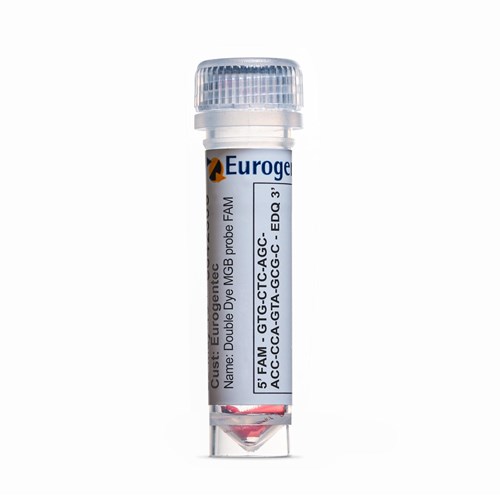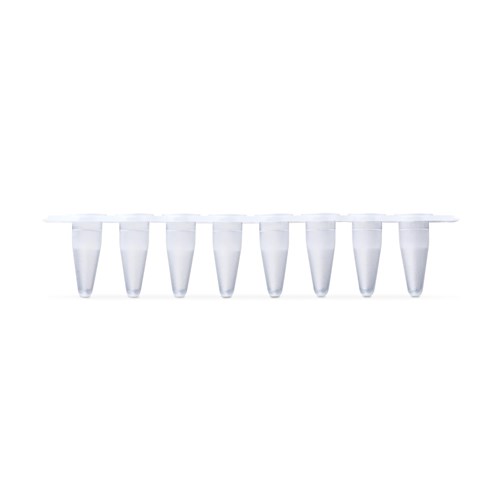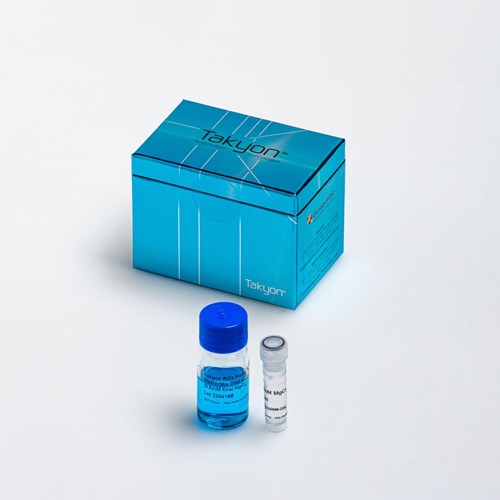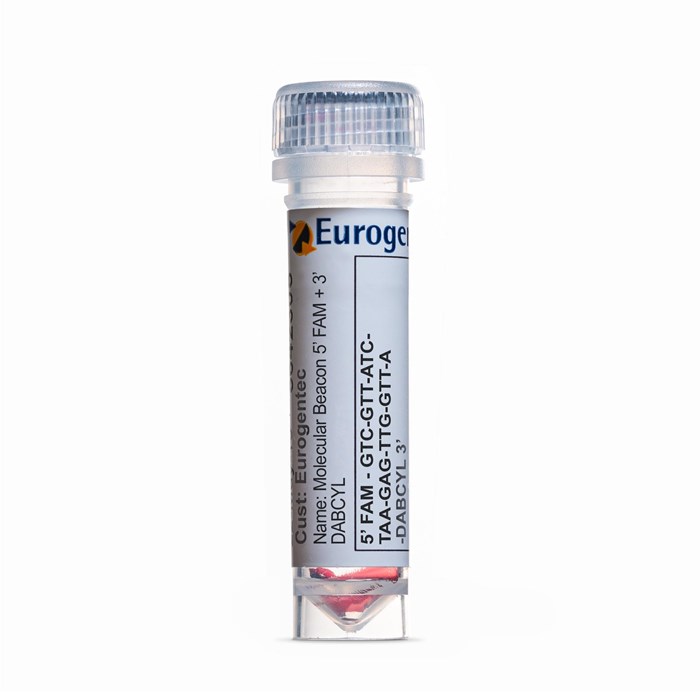M Beacon 5' FAM 3' DABCYL - 1 probe
- Cat.Number : PB-MB201-004
- Manufacturer Ref. :
-
Availability :
In production
Molecular Beacons are probes which contain a stem-loop structure, a fluorophore and a quencher at their 5’ and 3’ ends, respectively.
Eurogentec is a historical supplier of Molecular Beacons, and offers a large number of fluorescent reporters and quenchers. All Molecular Beacons are provided double-HPLC purified and controlled by analytical HPLC and MALDI-TOF MS. The maximum length of standard Molecular Beacons is 45 bases. Molecular Beacons are provided lyophilized in individual tubes.
Eurogentec determines upon request the signal-to-noise ratio (STNR) for each Molecular Beacons by hybridizing it to its complementary sequence and comparing fluorescence to background. For FAM labelled Molecular Beacons, the STNR should be > 15. All other dyes require a signal-to-noise ratio > 10.
How do the Molecular Beacons work?
The ‘stem’ sequence keeps the fluorophore and the quencher together, but only in the absence of a sequence complementary to the ‘loop’ sequence. As long as the fluorophore and the quencher are in close vicinity, any photons emitted by the fluorophore are absorbed by the quencher. This phenomenon is called collisional (or proximal) quenching.
In the presence of a complementary sequence, the probe unfolds and hybridizes to the target, the fluorophore is displaced from the quencher, which can no longer absorb the photons emitted by the fluorophore, and the probe starts to fluoresce. The amount of signal is proportional to the amount of target sequence, and is measured in Real-Time to allow quantification of the amount of target sequence.
FAM - Absorbance = 495 nm, Emission = 520 nm
DABCYL : Quenching range [390-510]; Max 479 nm
Specifications
| Properties | |
| Absorbance (nm) |
|
|---|---|
| Emission (nm) |
|
| Quantity & Purity | |
| Purification Method |
|
| Storage & stability | |
| Form |
|
| Resuspension condition |
|
| Storage Conditions |
|
| Activity | |
| Usage |
|
| Codes | |
| Code Nacres |
|
You may also be interested in the following product(s)



